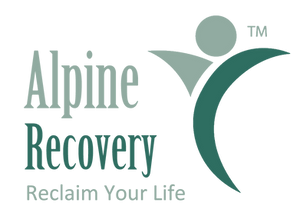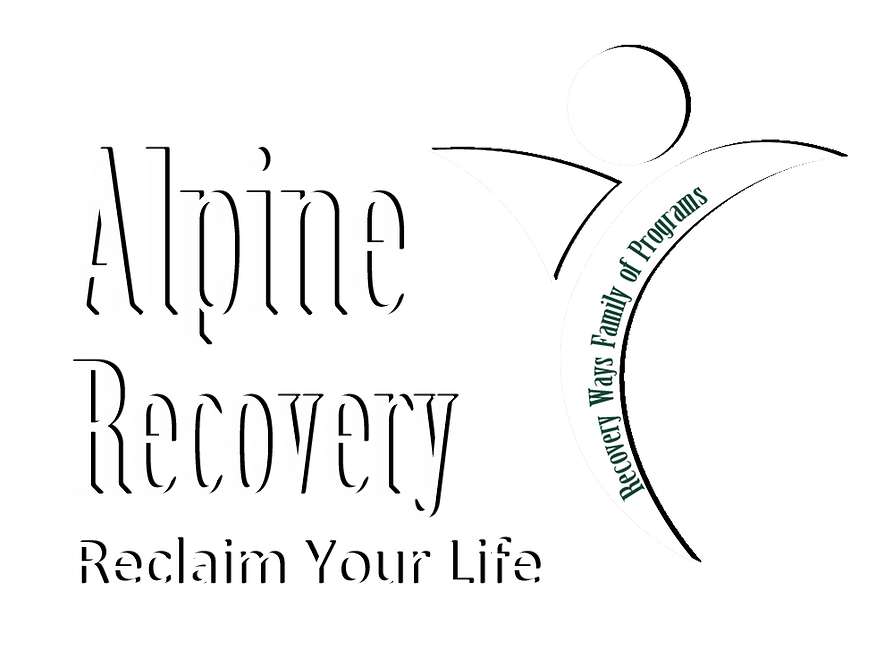Deciding to seek help for substance use is one of the most courageous steps a person can take. The journey toward recovery is often filled with uncertainty, questions, and hope. If you or a loved one is exploring treatment options, understanding what to expect at Rehab Facilities in Washington can make the process less intimidating and more empowering. Washington State offers a variety of rehab programs designed to support individuals struggling with substance use disorders such as alcohol addiction, marijuana addiction, fentanyl addiction, methamphetamine addiction, cocaine addiction, and opioid addiction.
At Alpine Recovery, we believe in demystifying the rehab experience so you can focus on what matters most—your healing. This guide will walk you through the typical stages of recovery at Washington rehab facilities, the clinical services you can expect, and how these programs support you physically, mentally, and emotionally on your path to lasting sobriety.
The Importance of Choosing the Right Rehab Facility in Washington
When it comes to recovery, the environment and the quality of care matter significantly. Rehab Facilities in Washington vary in size, treatment approach, and levels of care, but the best ones share common goals: providing compassionate, evidence-based treatment tailored to individual needs.
Washington State has seen increased investment in programs that address the complexities of substance use. Facilities here understand that addiction rarely exists in isolation—it often coexists with mental health challenges, trauma, and family dynamics that influence the course of recovery. Choosing a rehab center that offers comprehensive clinical services like assessment, family support, relapse prevention, and continuing care can make all the difference.
At Alpine Recovery, we emphasize a personalized approach. Our team believes that every patient deserves an individualized plan that honors their unique background, substance use history, and recovery goals. This commitment reflects a broader trend among Rehab Facilities in Washington that prioritize holistic, yet clinically rigorous care.
The First Step: Assessment and Intake
Upon entering any rehab facility in Washington, the first phase of treatment is assessment and intake. This process is critical because it forms the foundation of your recovery plan. The clinical team will conduct a thorough evaluation to understand your substance use patterns, mental and physical health status, social circumstances, and readiness for change.
The assessment typically includes:
- A detailed interview about your history with substances such as alcohol, marijuana, fentanyl, methamphetamine, cocaine, or opioids.
- Screening for co-occurring mental health disorders.
- Physical health evaluations to identify any medical issues related to substance use.
- Risk assessments to determine the level of care needed.
In many cases, the assessment will help determine if you are best suited for a Partial Hospitalization Program (PHP), an Intensive Outpatient Program (IOP), or a different level of care. This step is not just about diagnosis—it’s about partnership. The clinical team works with you to set realistic expectations and outline the recovery journey ahead.
Understanding the Levels of Care: PHP and IOP
One of the key features of Rehab Facilities in Washington is the availability of flexible care levels that can meet patients where they are in their recovery. The two most common structured outpatient options are Partial Hospitalization Programs and Intensive Outpatient Programs.
Partial Hospitalization Programs (PHP) provide a high level of clinical support without requiring overnight stays. Patients typically spend several hours a day at the facility, participating in a mix of individual counseling, group therapy, educational sessions, and clinical monitoring. PHP is often appropriate for individuals stepping down from inpatient care or those needing intensive treatment but who have a stable home environment.
Intensive Outpatient Programs (IOP) offer similar services but with fewer hours per week. IOPs allow greater flexibility and are designed for people who have responsibilities such as work or family but still need structured support to maintain recovery. Both PHP and IOP are widely available in Washington and offer evidence-based therapies, including relapse prevention and moral reconation therapy.
These programs focus on helping patients rebuild healthy routines, learn coping skills, and prepare for long-term recovery outside the clinical setting.
Clinical Services You Can Expect at Rehab Facilities in Washington
The strength of Rehab Facilities in Washington lies in their comprehensive clinical services, which go beyond detox or simple counseling to create a full-spectrum recovery experience. Some of the core services you can expect include:
Family Support
Addiction doesn’t just affect the individual; it impacts families and loved ones profoundly. Many Washington rehab facilities, including Alpine Recovery, recognize this by integrating family support into their treatment programs. Family counseling sessions aim to improve communication, rebuild trust, and educate loved ones about addiction and recovery. This creates a supportive environment that extends beyond the patient’s time in the facility.
Continuing Care
Recovery does not end when you leave a rehab facility. Continuing care is a structured approach to support long-term sobriety through ongoing counseling, peer support groups, and relapse prevention strategies. Many rehab centers in Washington offer aftercare planning as an integral part of treatment, ensuring that patients have a roadmap for maintaining recovery after discharge.
Moral Reconation Therapy (MRT)
MRT is a cognitive-behavioral therapy designed to improve moral reasoning, decision-making, and impulse control. This therapy is particularly helpful for individuals who have struggled with behaviors linked to substance use, such as legal issues or risky decision-making. MRT is a widely used, evidence-supported approach offered at many Rehab Facilities in Washington, including ours, helping patients develop a stronger sense of responsibility and self-awareness.
Relapse Prevention
Preventing relapse is a cornerstone of effective recovery. Rehab facilities in Washington emphasize teaching practical skills to recognize triggers, manage cravings, and handle stress without turning back to substances. Relapse prevention plans are personalized and may include lifestyle changes, coping strategies, and support networks.
Positive Choices
Many programs incorporate Positive Choices frameworks to encourage healthier decision-making and foster resilience. This service helps patients replace harmful habits with positive behaviors that support recovery goals, such as improved nutrition, exercise, and social engagement.
Addressing Various Substance Use Disorders in Washington
The challenges and recovery needs for each substance use disorder can differ significantly. The good news is that Rehab Facilities in Washington have developed specialized approaches for the most common addictions, including:
- Alcohol Addiction: Washington has a high prevalence of alcohol use disorder. Treatment programs address both physical dependence and the behavioral patterns that maintain addiction.
- Marijuana Addiction: While marijuana legalization has changed perceptions, addiction and dependency issues remain. Facilities provide counseling and coping skills for managing cravings and triggers.
- Fentanyl Addiction: The opioid crisis has hit Washington hard, and fentanyl addiction is a critical focus. Treatment often includes medical supervision and support for managing withdrawal symptoms safely.
- Methamphetamine Addiction: Meth addiction poses unique challenges due to its strong psychological effects. Facilities provide specialized therapy to address intense cravings and behavioral health impacts.
- Cocaine Addiction: Treatment includes strategies for handling stimulant cravings and rebuilding healthy brain chemistry.
- Opioid Addiction: From prescription opioids to heroin, opioid addiction treatment often integrates medication-assisted therapies along with counseling.
Each rehab facility in Washington tailors its clinical approach to meet the nuances of these substances, ensuring that patients receive the care best suited to their needs.
Emotional and Social Aspects of Recovery
Recovery at Rehab Facilities in Washington is more than detox and therapy—it’s a transformation that includes emotional and social healing. Addiction often isolates individuals from friends and family, leaving them vulnerable to loneliness and shame.
Within rehab, you’ll find a community of peers who understand what you’re going through. Group therapy sessions create safe spaces for sharing experiences and building accountability. Many patients report that these connections are vital to sustaining motivation and hope.
At the same time, individual counseling addresses deeper emotional wounds, trauma, and mental health challenges that may contribute to substance use. Addressing these root causes is essential for long-term success.
Family Support services also play a role here, helping to repair relationships and create a support network that will be crucial once treatment ends.

What Life Looks Like During a Partial Hospitalization or Intensive Outpatient Program
Participating in a PHP or IOP allows patients to engage actively in recovery while still maintaining some life responsibilities. Days might include a structured schedule of:
- Group therapy focused on relapse prevention or positive choices.
- Individual counseling tailored to your recovery goals.
- Educational sessions on topics like stress management and healthy living.
- Family support meetings to involve loved ones in the process.
- Time for self-reflection and personal growth.
This balance helps patients integrate recovery into their daily lives gradually, reinforcing the skills learned in treatment while testing them in real-world settings.
Preparing for Discharge and Continuing Recovery
One of the biggest challenges in addiction recovery is the transition from rehab to everyday life. Rehab Facilities in Washington prioritize discharge planning and continuing care to support this critical phase.
Before leaving, you will work closely with your clinical team to develop a personalized continuing care plan. This plan often includes:
- Follow-up outpatient counseling.
- Participation in support groups or 12-step programs.
- Strategies for handling high-risk situations and avoiding relapse.
- Family involvement to strengthen your support network.
At Alpine Recovery, we know that continuing care dramatically improves long-term outcomes. Our commitment is to remain a resource for you even after formal treatment ends.
The Role of Support Networks in Recovery
Recovery is rarely a solo endeavor. Overcoming addiction—whether it’s alcohol addiction, opioid addiction, or any other substance use disorder—requires a strong support system to navigate the many challenges along the way. The journey to sobriety involves not just physical healing but emotional and social rebuilding, which can be difficult to achieve alone. That’s why support from peers, family members, and addiction professionals is absolutely essential.
Rehab Facilities in Washington recognize this vital need and actively encourage the development of robust support networks throughout the treatment process. Family support programs help repair relationships and foster understanding, creating a foundation of encouragement and accountability at home. Peer support groups provide a sense of community where individuals share their stories, struggles, and successes. This shared experience often becomes a powerful motivator, reminding patients that they are not alone in their recovery journey.
Additionally, many rehab centers offer alumni activities and ongoing support groups designed to maintain connections beyond formal treatment. These opportunities allow individuals to continue learning from others who have successfully maintained sobriety, gaining insights and strategies to handle real-life challenges. Building and sustaining these support networks significantly increase the likelihood of long-term recovery and provide a safety net during moments of vulnerability.
Why Choose Rehab Facilities in Washington?
Washington State offers some of the most progressive and comprehensive rehab programs in the country. The emphasis on evidence-based treatment, combined with compassionate clinical care, makes it an excellent place for recovery. Here’s why many choose Washington rehab facilities:
- Access to a broad range of clinical services specifically tailored to meet each individual’s unique needs. These services ensure that treatment addresses not only the addiction itself but also the underlying physical, emotional, and psychological factors that contribute to substance use disorders.
- Flexible levels of care, including Partial Hospitalization Programs (PHP) and Intensive Outpatient Programs (IOP), designed to accommodate different lifestyles and recovery needs. Whether someone requires more structured daily support or needs to balance treatment with work and family responsibilities, these programs provide adaptable options that promote sustained healing.
- A strong emphasis on family involvement and continuing care throughout the recovery process. Recognizing that addiction impacts entire families, many facilities integrate family counseling and education to rebuild trust and strengthen relationships. Continuing care plans also ensure ongoing support after formal treatment ends, helping patients maintain long-term sobriety.
- Specialized treatment options tailored for the most prevalent and challenging addictions in the region, such as fentanyl, methamphetamine, and opioid addiction. These programs combine medical supervision with evidence-based therapies to effectively address the complex nature of these substances and their effects.
- Experienced clinical teams trained in a variety of therapeutic approaches, including Moral Reconation Therapy and relapse prevention techniques. These professionals provide compassionate guidance, helping patients develop critical skills for making positive choices and avoiding relapse.
- Supportive and nurturing environments that foster a sense of community and encourage personal growth. By creating safe spaces where individuals can connect with peers and staff, rehab facilities help patients build confidence, develop healthy habits, and embrace recovery as a lifelong journey.
Alpine Recovery proudly stands among these facilities, committed to walking with you every step of the way.
Final Thoughts: Your Recovery Journey Starts Here
Recovery is a path filled with challenges but also incredible hope. At Rehab Facilities in Washington, you will find a comprehensive, caring environment designed to meet you where you are and help you move toward a healthier future.
Whether you’re seeking treatment for alcohol addiction, marijuana addiction, fentanyl addiction, methamphetamine addiction, cocaine addiction, or opioid addiction, Washington’s rehab centers offer the clinical services and supportive community essential for success.
The first step—reaching out—is the most important. If you or a loved one are ready to begin your recovery journey, know that help is close by. Contact Alpine Recovery or any trusted rehab facility in Washington to start building the foundation for lasting sobriety today. For more information, visit our website https://alpinerecovery.com/ or call us at (360) 658-1388.



